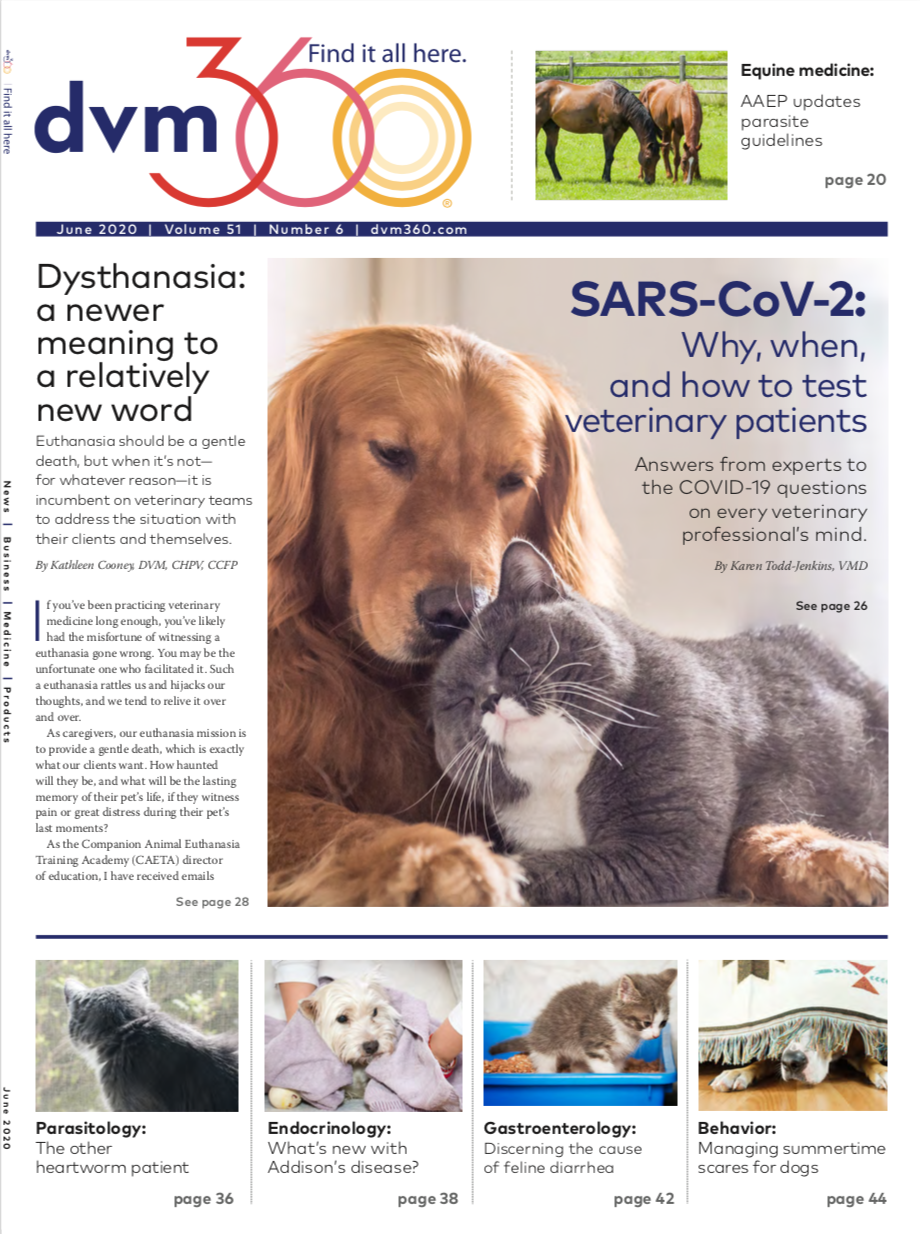An open letter to my fellow 2020 graduates
On the precipice of graduation, one new veterinarian chooses to look boldly toward the future rather than dwell on what he has missed.
Jon Schulte / stock.adobe.com

I don’t take a direct path to anything. While others think the best path is a straight line, I tend to roll down the hill, uncontrolled, skillfully dodging (or crashing through) obstacles in my way. Like a cat, I always land on my feet, ready to take the next steps down whichever path I choose. Most people look at an alternative path as a disadvantage, but I have learned to embrace it as my greatest advantage. Others see impossibility where I see opportunity.
My path to veterinary school was less like a road and more like a pinball game, with me as the star ball. No one was sure where I would end up, or if I would make it anywhere at all. A path that takes most students 26 to 28 years has taken me 32, in part due to all the detours I took along the way. But those detours afforded me experience that cannot be taught in the most prestigious classroom: lessons in flexibility, initiative and the courage and creativity to look at things from an unorthodox perspective.
Naturally, it was with particular excitement and joy that I looked toward veterinary school graduation, the affirmation that despite all the trips and train wrecks, and all the people along the way who said I couldn’t or never would, that I made it. Little did I know that getting hooded by my dear mentors in front of loving family and friends was not meant to be.
Watching the news, hearing about friends sick and dying, I was absolutely repulsed at myself for allowing something as superficial as walking across a stage distract me from the threat faced by loved ones on the East Coast and across the globe. If anyone could deal with the anticlimax of having my grand ceremony replaced by a PowerPoint presentation, it should have been me.
But as much as I tried to push it out of my head, as much as I continued to do what I could to offer support in this unprecedented time of need, the thought persisted. Our last days on the clinic floors, rotations that we spent the better part of a year trying to organize, and chances to mentor the class of 2021 as they navigated their first steps on the clinic floor have been replaced by online learning. After a year of being out of the classroom setting, learning to live and blossom as practicing clinicians, we now find ourselves again among the flashing lights and ringing bells as we get smacked unexpectedly from place to place, free-falling to the next unknown, unsure where we will end up. It’s easy to get caught up in that narrative, and not so easy to decide not to be the ball, to take the impossible hand that we have been dealt and see opportunity.
Everyone leaves vet school being told that they can shape the world, change the profession and forge the way, leaving footsteps for future generations to follow. Never before has this opportunity been so immediate as it has with us, the class of 2020. We stand in a doorway about to enter a world upside down. Every hour of veterinary experience, every class attempting to teach us how to interact with clients and advocate for the best interests of their pets reads like some archaic tome.
Now we are allspeeding downhill, not really knowing what is ahead and forced to decide whether to keep dodging (or crashing through) our obstacles and adapting to the unexpected twists and turns in our path. It is no longer enough to work hard, no longer enough to have the skills and knowledge to understand the inner workings of our patients and why they are coming to us. We now need the creativity to figure out new ways to approach old problems and create a new normal. We need the flexibility to keep trying when those ideas fail and, more than ever, we need to be prepared to deal with and respond to the mounting anti-intellectual dialog that undermines our work and compromises the global population.
Whether we aim to become clinicians, to protect the world’s food source or enter into research developing new and effective viral surveillance methods so that we may be better prepared to deal with the next spillover event, we are essential. This time, albeit sad and disappointing, is one of the most exciting times to be a veterinarian. I for one am ready for that downhill tumble. I hope that you will all join me, and perhaps even pick me up when I fall. The people who went from being our competition in the application pool to our peers in school will now need to be the rocks that support us as we all navigate this new world together.
Yes, it is awful that we were denied the opportunity to celebrate our achievements in the face of a one-micron microbe. But rather than dwell on what we can’t change, let’s instead focus on celebrating our achievement and demonstrating the unique qualifications that enable us to meet the demands of this changing world. We are the most equipped to not only educate and advocate for, but to protect from the ongoing threat of zoonosis, this world, our loved ones and the amazing creatures that we have devoted our lives to serving.
As someone who has not taken a single direct path to anything, I look forward to the future, to discovering the wonder, excitement and fun of redefining convention and creating a better and safer world in the process.
Dr. Eisenmann earned his DVM from Midwestern University College of Veterinary Medicine last month.
